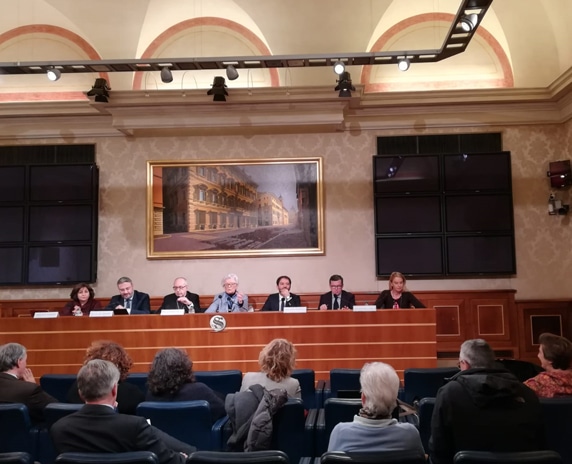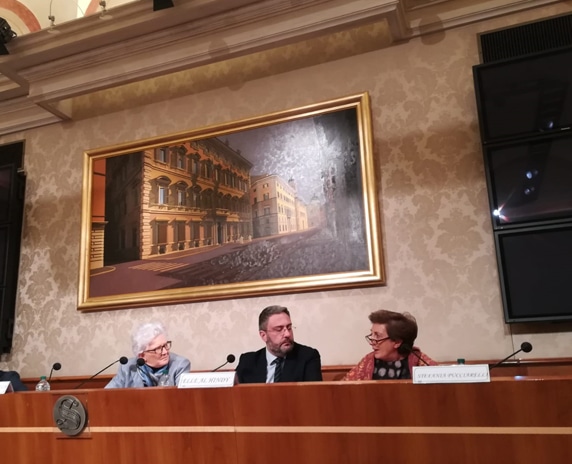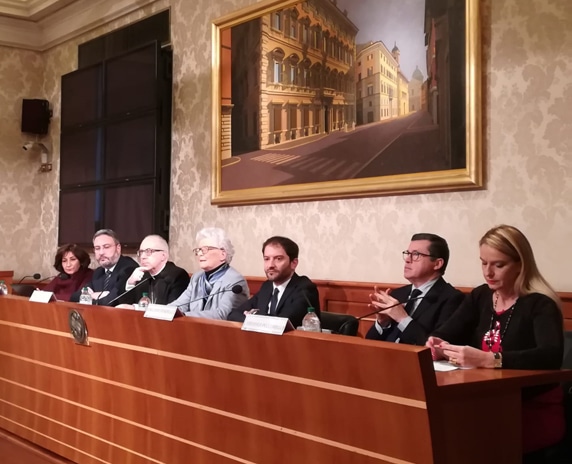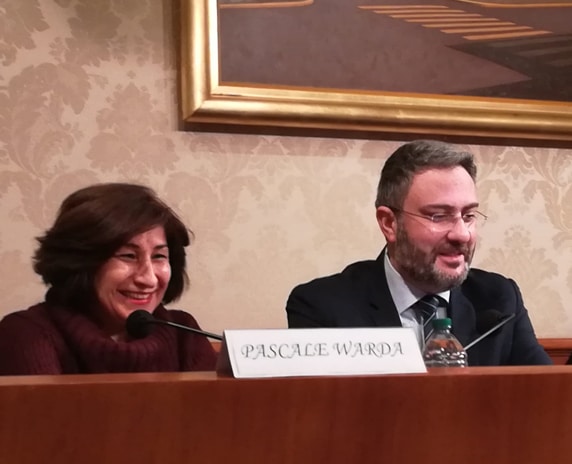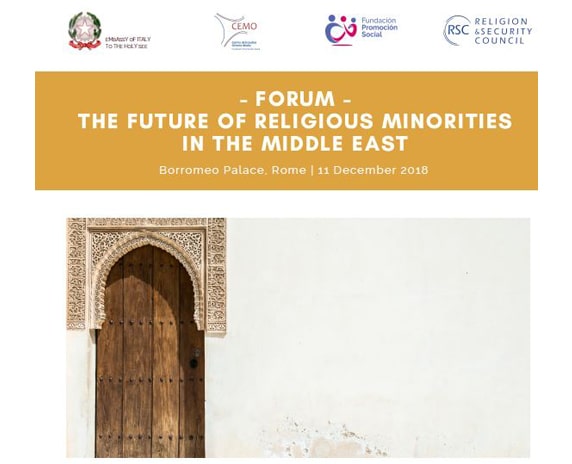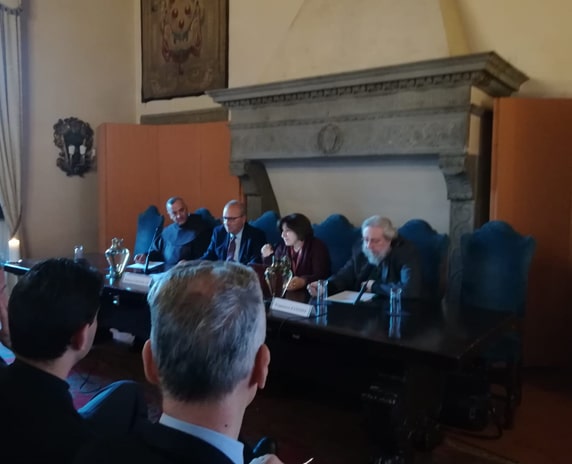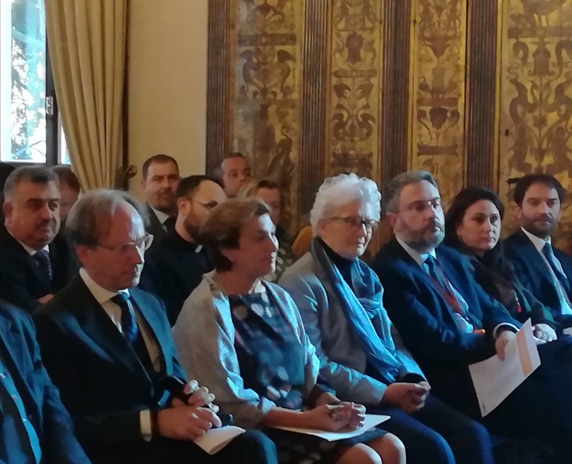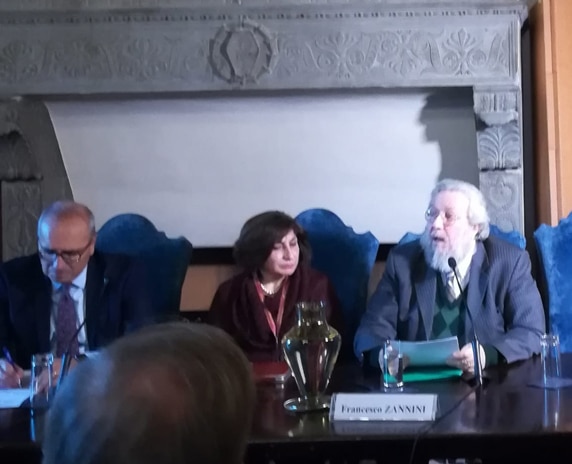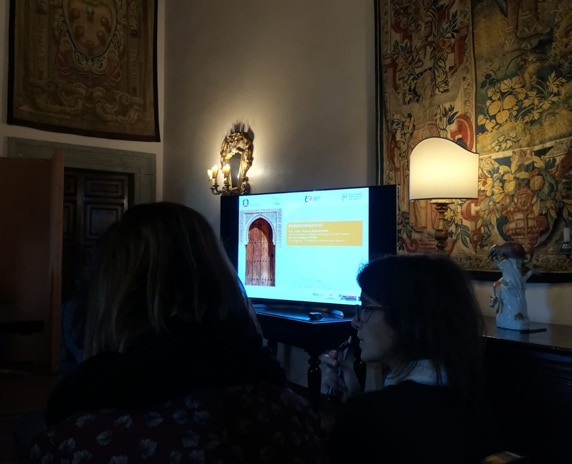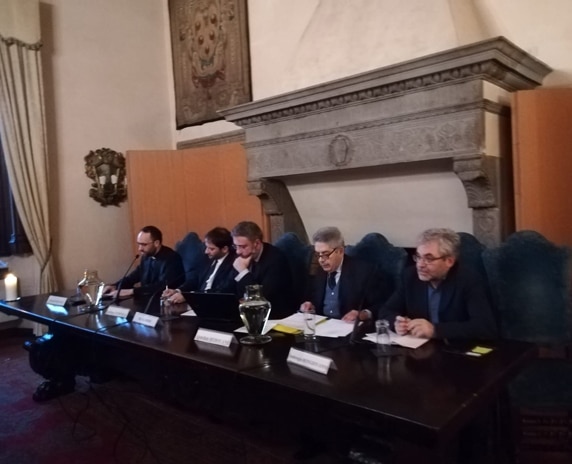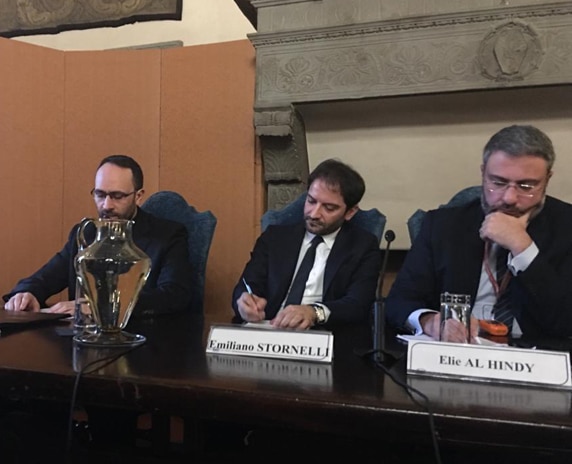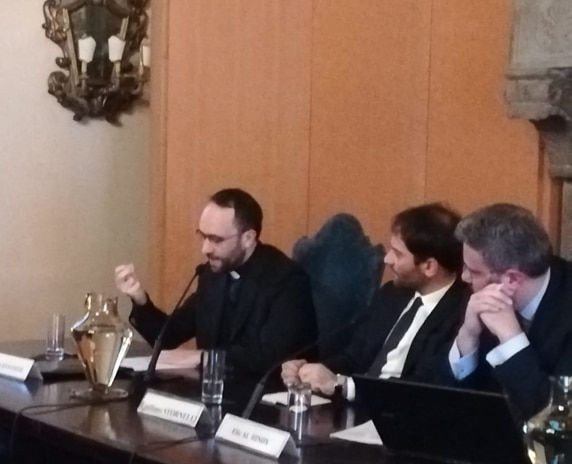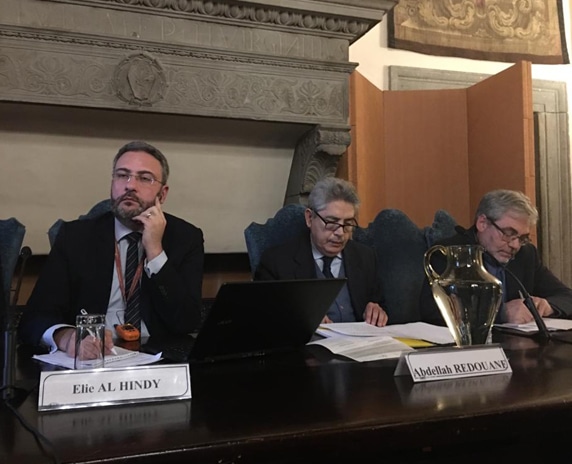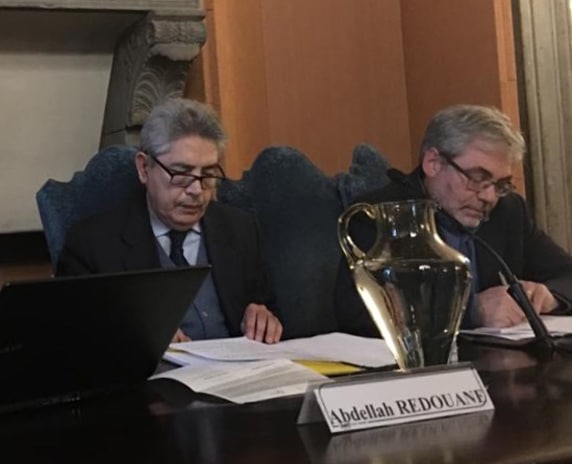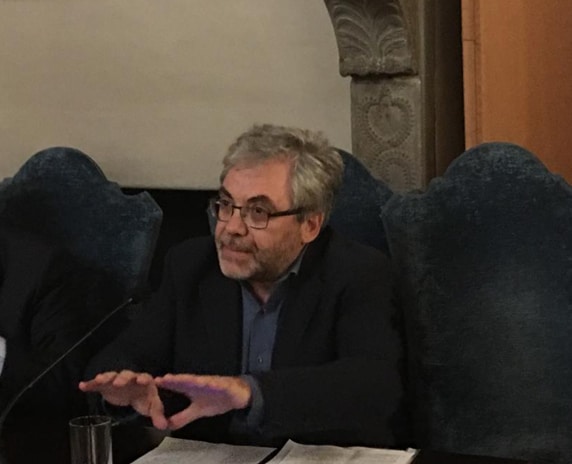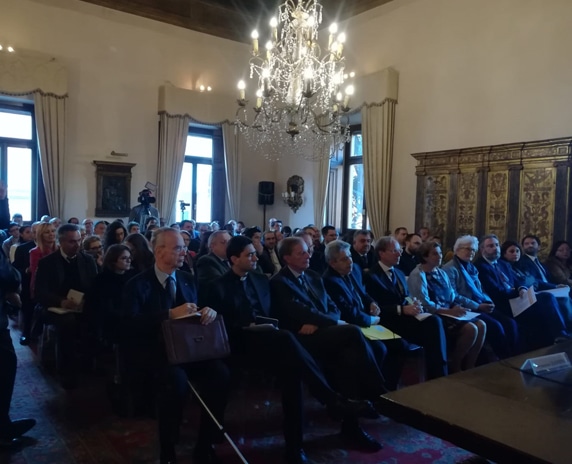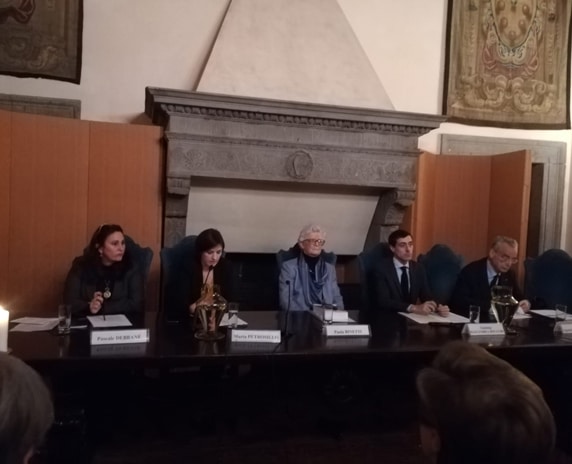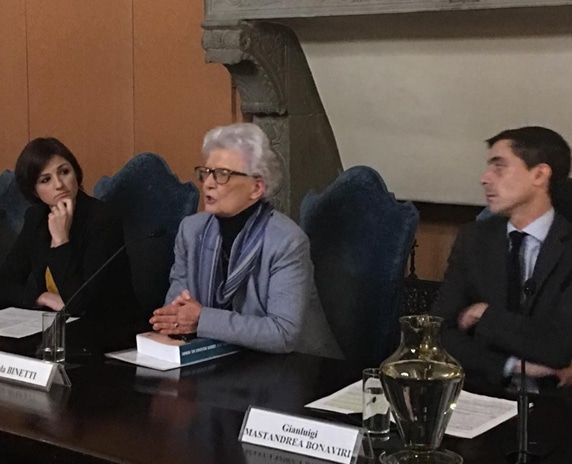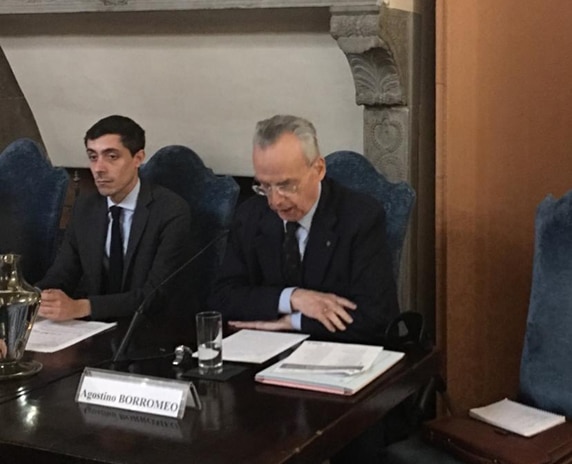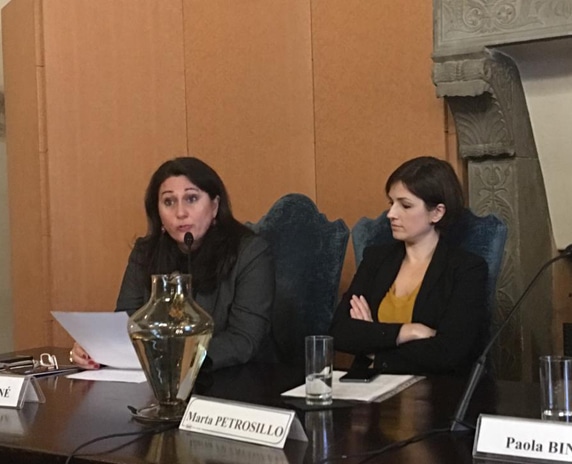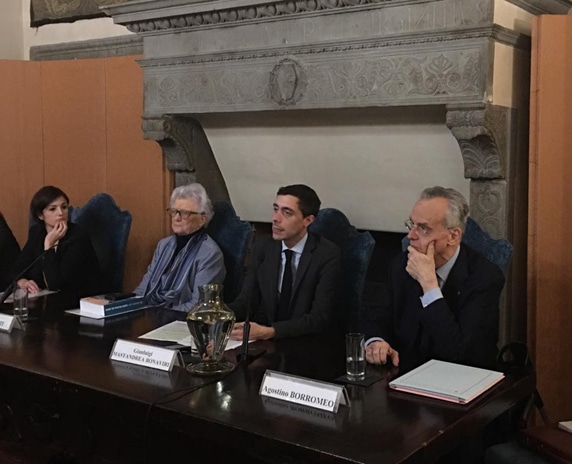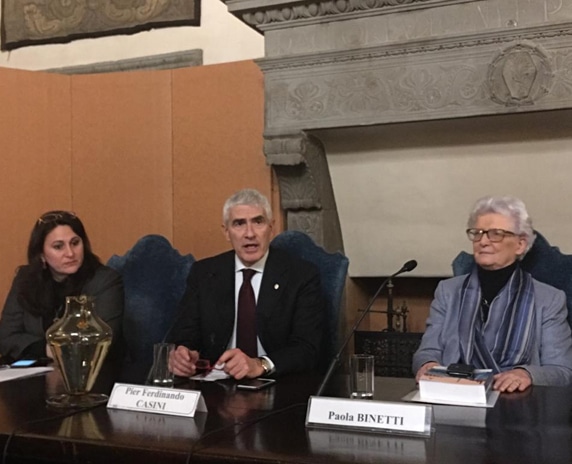On December 11, the Seminar “The Future of Religious Minorities in the Middle East”, organized by the Middle East Studies Center of the Social Promotion Foundation (cemofps.org) took place at the Embassy of Italy to the Holy See and promoted by the Embassy itself and Religion & Security Council.
The seminar that took place during the afternoon was preceded in the morning by the presentation to the media and the general public in the Senate of the Republic of Italy with the intervention of one of the participating experts, among them, Paola Binetti member of the Senate and Patron of the Social Promotion Foundation and the President of the foundation, Jumana Trad.
The words of welcome and the opening of the seminar were made by Ambassador Pietro Sebastiani and the president of the Social Promotion Foundation, Jumana Trad.
We are witnessing, through our daily work in the Middle East, the successes and failures, the progress and setbacks, the hopes and frustrations of the people who live there. It is urgent to propose serious solutions for peace and firm commitments to restore the authority of the states, taking into account the importance of religious freedom as an instrument of cohesion and integration of different religious minorities with equal rights at all levels (Jumana Trad)
Then, the first table was held, moderated by Roberto Fontolan from Stand Together, in which he reflected on the challenges and prospects for the future of religious minorities in areas of crisis; Pascale Warda, former minister for Immigration and Refugees in Iraq, spoke about the main challenges and difficulties faced by Christians in her country.
Christians to return to Iraq must feel safe there; the international community has to work for it (Pascale Warda)
The Rev. Fr. Rachid Mistrih, regional minister for Syria, Lebanon and Jordan of the Custody of the Holy Sepulcher, referred to the dramatic exodus of Christians in the Middle East, and specifically in Iraq, where the number of Christians has gone from one million and a half in 2006 to less than one hundred and forty thousand today. Faced with the mass exodus of Christians in the Middle East, it proposes education as a fundamental right so that each person can develop an integral education that trains man.
We are challenged to consider the proper identity of Christians in Lebanon, Iraq, Syria, etc. as an identity of its own, not as a transitory situation or religious minorities (Rev.P. Rachid Mistrih)
Francesco Zannini of the Pontifical Institute for Arab and Islamic Studies (PISAI) examined the past, present, and perspectives of relations between Christians and Muslims in the Region.
Christians are being considered second-class citizens in countries where Sharia rules (Francesco Zannini)
The second roundtable was moderated by Emiliano Stornelli, President of Religion & Security Council and addressed the crucial issue of the role of Christians in conflict resolution and interreligious dialogue.
Father Laurent Basanese SJ, director of the Center for Interreligious Studies of the Pontifical Gregorian University, was the first to intervene and stressed the need to maintain an effective dialogue.
Elie Al Hindy, Professor at Notre Dame University-Louaize, appealed to the right to freedom of Christians in the Middle East.
Now that we are approaching Christmas we should think that there are many Christians who will not be able to live these holidays as they should. The greatest danger now for Christians is the loss of hope. We have the right to live our faith without schizophrenia in full freedom (Elie Al Hindy)
Next Abdellah Redouane, general secretary of the Islamic Cultural Center of Italy took the word and said that dialogue between religions is not an end in itself but must guarantee mutual existence and appealed to the need for Christians in the Middle East to remain in the Region.
One Lebanon, one Iraq and one Syria without Christians is not the Lebanon, Iraq, and Syria that I know and love (Dr. Abdellah Redouane)
Finally, Ambrogio Bongiovanni, Professor of interreligious and intercultural dialogue at the Pontifical Urbaniana University, expressed the need to activate training to institutionalize interreligious dialogue.
Dialogue is a vocation proper to Christianity, but it is hampered above all in places of power (Ambrogio Bongiovanni)
The third session was devoted to the protection of minorities and to the discussion on the role that the international community should play in this regard. Moderated by Marta Petrosillo, spokesperson for Aid to the Church in Need – Italy, Paola Binetti, member of the Senate of the Republic of Italy and Member of the Board of Trustees of the Social Promotion Foundation, Agostino Borromeo, Lieutenant General of the Equestrian Order of the Holy Sepulcher of Jerusalem and Pascale Debanne, Regional Coordinator for the Middle East of the Migrants and Refugees Section in the Holy See participated.
If access to training is a necessary tool for the survival of a minority, it is not enough: it is necessary to help minorities to preserve their identity (Prof. Agostino Borromeo)
Pierluigi Mastrandea also participated, representing the Office of Human Rights in the General Directorate of Security and Political Affairs of the Ministry of Foreign Affairs and International Cooperation in Italy, who illustrated the action of the Italian government in support of religious minorities.
The Church is working to guarantee the return of refugees to their countries of origin in conditions of security and mutual understanding (Pascale Debanne)
Pierferdinando Casini, member of the Senate of the Republic of Italy was in charge of making the conclusions and terminates the seminar.


